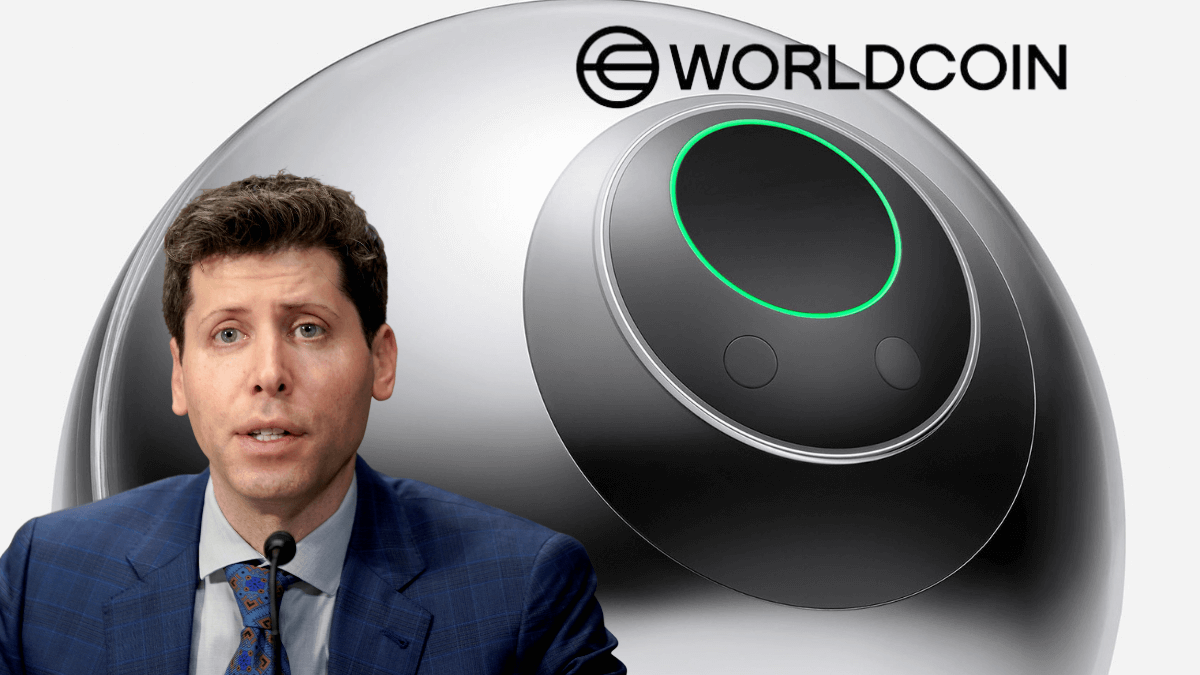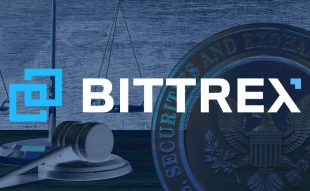Join Our Telegram channel to stay up to date on breaking news coverage
Worldcoin (WLD), a cryptocurrency project led by Sam Altman, founder of ChatGPT and CEO of OpenAI, has sparked a global debate. Regulators and privacy advocates are raising concerns about its ambitious mission: to provide universal digital identities.
Launched with enthusiasm last month, Worldcoin seeks to revolutionize identity verification in the digital age. It does this by assigning individuals a unique digital identity through biometric data. Its distinctive metallic orb collects this data, primarily using iris scans.
The Worldcoin project is now live. pic.twitter.com/xZXG4w56Ps
— Worldcoin (@worldcoin) July 24, 2023
However, a storm of criticism has arisen, with concerns ranging from data security to potential privacy violations. This has led to increased scrutiny and investigations by authorities worldwide.
At the heart of the controversy lies Worldcoin’s method of identity assignment, which starkly contrasts the conventional state-based model. While states typically issue identities, Worldcoin has entrusted this responsibility to a private organization.
The project entails collecting personal data, including highly sensitive iris scans. Yet, this data collection strategy has triggered alarm bells as questions abound regarding data security and the potential monetization of collected information.
Reuters recently reported a concerning revelation from the general manager of Tools For Humanity, the company behind the Worldcoin project. The manager admitted that Worldcoin could make the collected data available to corporations and governments, igniting fears of its potential misuse.
These revelations have fueled anxieties about the organization’s intentions and adherence to privacy laws. Some states have been prompted to raise objections to the data collection initiative due to potential illicit uses.
Ethical Concerns and Dubious Marketing Tactics Under Scrutiny
As the Worldcoin project gained momentum, allegations of unethical practices and deceptive marketing techniques emerged. Investigative reporters shed light on the organization’s actions in various countries, particularly in the Global South.
Reports surfaced that the company was distributing its native token, WLD, as an incentive for sign-ups, allegedly employing misleading marketing strategies. These allegations further exacerbated concerns about the project’s transparency and ethical integrity.
Kenya, one of the countries where Worldcoin launched, has taken a notable stance against the project’s data collection practices. The Kenyan interior ministry announced the suspension of local Worldcoin activities to assess potential risks to public safety.
Joint statement on the WORLDCOIN by Cabinet Secretary for the @InteriorKE @KindikiKithure and Cabinet Secretary for @MoICTKenya @EliudOwalo. pic.twitter.com/pp5WnsmrcJ
— Ministry of Interior | Kenya (@InteriorKE) August 3, 2023
The Interior Minister, Kithure Kindiki, said in a statement:
Relevant security, financial services, and data protection agencies have commenced inquiries and investigations to establish the authenticity and legality of the aforesaid activities.
Kenyan regulators highlighted a critical issue: exchanging iris scans for monetary rewards, potentially bordering on inducement. This move underscores the growing unease surrounding Worldcoin’s tactics and the broader implications of such practices.
On August 8, the Argentine Agency for Access to Public Information (AAIP) revealed its investigation into Worldcoin’s practices of collecting, storing, and utilizing user data. This inquiry aims to ascertain the alignment of these actions with existing privacy regulations.
AAIP stated:
Argentinians have the right, whenever personal data is provided, to have clear and accessible information in relation to the assignment, use and purpose for which the data is collected and processed, especially with regard to sensitive data, such as biometric data.
Reuters reported that the Bavarian State Office for Data Protection Supervision disclosed its ongoing investigation into the project due to privacy apprehensions in Germany. Likewise, the French National Commission on Informatics and Liberty (CNIL) labeled Worldcoin’s data collection techniques “questionable.”
Echoing these sentiments, the United Kingdom’s Information Commissioner’s Office has conveyed comparable reservations. It has affirmed its intention to scrutinize the project. This is to confirm adherence to data protection regulations.
Global Privacy Advocates and Experts Sound the Alarm
Concerns among privacy experts are arising regarding the potential vulnerability of Worldcoin to criminal infiltrations. These concerns mirror data breaches witnessed in other prominent corporations.
These experts emphasize that the trade in biometric data, already observed in regions like China, could expand to other countries or jurisdictions. This would compound the apprehensions surrounding Worldcoin’s security measures.
Pete Howson, a professor of international development at Northumbria University in Newcastle upon Tyne, England, said:
When biometric data gets leaked, especially in the poor countries where Worldcoin’s been operating, people’s lives are on the line.
Vitalik Buterin, the co-founder of Ethereum, expressed reservations about the privacy implications associated with iris scanning, noting the unintended risks of exposing personal information. Buterin cautioned that unauthorized database access could allow anyone to ascertain an individual’s World ID status, raising profound privacy concerns.
What do I think about biometric proof of personhood?https://t.co/yozo1buW24
— vitalik.eth (@VitalikButerin) July 24, 2023
Worldcoin’s Response and Commitment
In a recent blog post, Worldcoin addressed the mounting privacy concerns regarding its novel service, stating:
Everything is optional, and no personal data is disclosed by default, enabling each holder to decide which (if any) personal data to share with third parties when using World ID.
Worldcoin has previously asserted its commitment to safeguarding users’ data, citing adherence to industry best practices. This includes, but is not restricted to, compliance with Argentina’s Personal Data Protection Act 25.326. This claim is bolstered by an audit conducted by two security firms in late July.
In addition to concerns about how it collects and stores data, the project is also being looked at closely for how it got its first users. A study by MIT Technology says that Worldcoin got its first million users by being tricky, giving out money, and taking advantage of people in poorer countries.
As the project navigates these turbulent waters, its long-term success hinges on its ability to address the concerns of regulators, experts, and advocates. Balancing technological innovation with ethical data practices will be paramount in shaping Worldcoin’s role in the evolving digital landscape. In an era of rapid technological change, the Worldcoin saga is a poignant reminder of the need for responsible and accountable data privacy and identity management approaches.
Related Articles
- Best Crypto to Buy Now – Top 15+ List
- Worldcoin Price Prediction: WLD Dips as Buzz Around New Meme Token Grows Louder
- Shibie Meme Coin Nears Sellout: Less Than $200k Left in Presale, Expected to Close in 72 Hours
Best Wallet - Diversify Your Crypto Portfolio
- Easy to Use, Feature-Driven Crypto Wallet
- Get Early Access to Upcoming Token ICOs
- Multi-Chain, Multi-Wallet, Non-Custodial
- Now On App Store, Google Play
- Stake To Earn Native Token $BEST
- 250,000+ Monthly Active Users
Join Our Telegram channel to stay up to date on breaking news coverage


